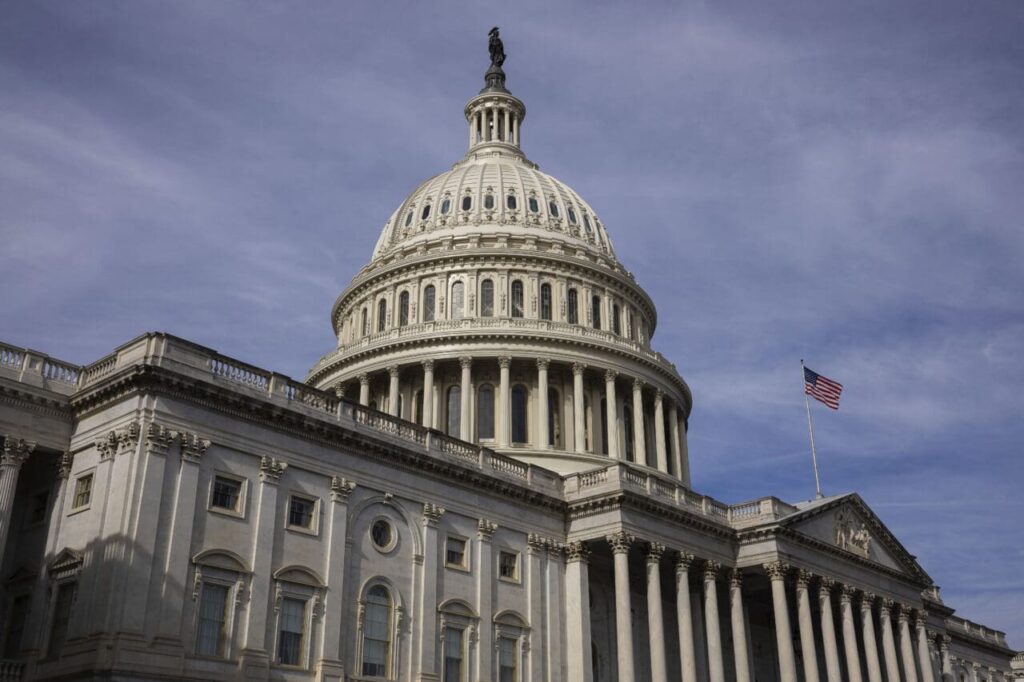California Republicans Face Pressure Over Election Certification
In the wake of the 2020 presidential election, a significant number of California’s Republican members of Congress faced scrutiny for their refusal to certify the election results, which was seen as an endorsement of former President Donald Trump’s unfounded claims of election fraud.
As the upcoming presidential election approaches, only a fraction of California’s Republican representatives have committed to certifying the results. Of the 12 GOP incumbents, just four have pledged to accept the election outcome. Similarly, among GOP challengers in competitive districts, Scott Baugh and Kevin Lincoln have expressed their intention to certify, along with Senate candidate Steve Garvey.
This reluctance comes in the context of Trump and his allies casting doubt on the integrity of the upcoming election, fueling fears of potential disruptions. Trump’s allegations of non-citizen voting and other unverified claims have heightened these concerns. The vote in Congress is historically a straightforward confirmation of state-certified electoral votes, but the events following the 2020 election have added complexity to this process.
Notably, on January 6, 2021, a group of Trump supporters stormed the U.S. Capitol, coinciding with 147 Republican Congress members objecting to electoral counts from Arizona and Pennsylvania. In contrast, all California Democrats in Congress voted to certify Biden’s victory.
Among California Republicans, Rep. Young Kim notably certified the 2020 results, stating, “The constitution does not give Congress the authority to overturn elections. To take such action would undermine the authority of the states.” Rep. Tom McClintock also voted for certification, citing constitutional constraints, despite previous legal actions challenging Pennsylvania’s mail ballot procedures.
With changes like the Electoral Count Reform Act aiming to safeguard the certification process, experts highlight the heightened political landscape. Kim Nalder, a political science professor, expressed concern over the normalized distrust in electoral institutions, emphasizing that “something has to” change to mend this divide.
Chris Micheli, a veteran lobbyist, warned of potential challenges to the election results, citing close races in battleground states as a contributing factor. Both Harris and Trump are reportedly preparing for legal battles post-election.
Despite these challenges, the California Republican Party, as stated by spokesperson Ellie Hockenbury, remains optimistic that the election results will be certified. They are, however, actively investing in election integrity operations to address voter concerns and facilitate a transparent electoral process.
Trump maintains substantial support in California despite the general election loss, having secured more votes in the state than elsewhere. Recent polls, however, indicate Vice President Kamala Harris leading Trump among likely voters, although the margin narrows considerably in swing districts.
Rep. Ken Calvert, who initially objected, has reversed his stance, now promising to certify the election results. Other representatives like Jay Obernolte and newcomers to Congress, such as John Duarte, face critical decisions regarding their stance on certification, with Duarte publicly committing to certifying the election.
The reluctance of some GOP members to publicly state their position is attributed to concerns over alienating Trump’s voter base, as noted by strategist Jon Fleischman. He described the situation as a balancing act for Republicans in competitive districts, needing to appeal to both their conservative base and moderate voters.
For those in safe Republican areas, the focus is on their long-term political prospects within the party, particularly if Trump continues to play a significant role. “Assuming Trump wins, they will need to have loyalty exhibited within the party,” Nalder noted, underscoring the strategic silence of some GOP members.





